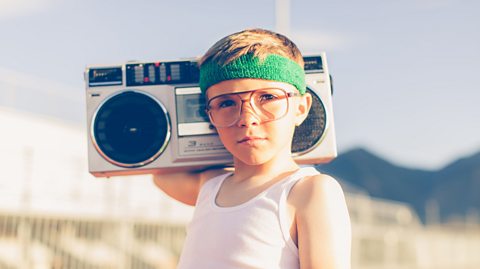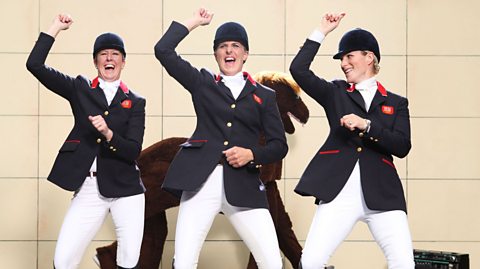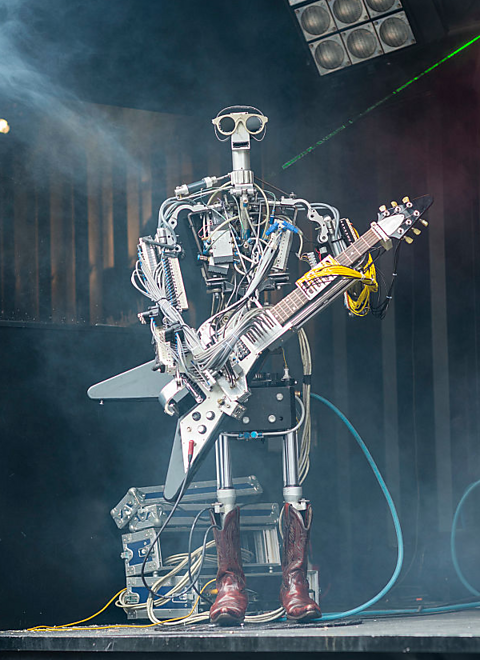Every summer there’s that one song that you just can’t escape.
It’s in your head quicker than you can say Vossi Bop, and it’s in there for the season.
At first you love it, it’s catchy, it’s up-beat, it’s your own personal backing track… but after six weeks at number one it inevitably starts to grate.
But where did the phenomenon of the summer song come from? And is it here to stay?
If we could turn back time…

The concept of the summer hit isn’t a new one. There’s actually a reference to “the summer song” in the 28 May issue of the New York Tribune from 1910:
“The roof gardens are opening and the summer shows begin. In the words of the almanac, ’About this time look-out for the summer song.’ What will it be this season? Will it be humorous? Will it be sentimental? Will it be unmitigated trash? Will it be at least bearable, in text or music, or both?”
Some things never change.

What makes a summer hit?
Unsurprisingly, it’s not just about the music. A feature in the New York Times in 1995 listed the requirements for a summer song as:
- It must be released in summer.
- It must be a fully realised work that can be summarised to the length of a T-shirt slogan.
- It enters your mind and stays there, forever.
When we look at the last few years of summer successes, this theory seems to fit.
Call Me Maybe? Get Lucky? One Dance? I Like It? Despacito.
Need we say more.
The value of viral
But the way we consume music is changing rapidly. University of Oxford music and data science expert Professor David De Roure said this has had an impact how a song becomes successful for summer.
“It’s the result of an entire industry," he said.
“Traditionally, the music industry would have a lot of say over whether a song gets promoted and what’s on the playlists and so on.
“But, increasingly, the engagement with the customers is through social media, other channels and all the streaming services."
You only have to remember Gangnam Style, and the more recent Baby Shark, to see how the route to success in music has evolved.
Between the song itself, the popularity of the artist, social media following, algorithms and videos going viral, you have to find that sweet spot.
Prof De Roure added: “There is more to making a song successful than the audio file itself”.

Eh? Aye!
And advances in technology aren’t just changing the way we consume music - but also how it is produced.
In Top of the Pops era you wouldn’t know what new songs would top the charts until you sat down on a Friday night, or tuned into the UK Top 40. But now, artificial intelligence can predict whether or not a song will be a hit before the public have even heard it.
“You could train an AI (Artificial Intelligence) with loads of pieces of music, you could tell it which ones are the hits and which aren’t the hits, and it would learn to predict,” Prof De Roure explains.
And this can be taken a step further. AI can actually be used to produce music.
You put in the prompt of a note or sequence of notes, and the AI can add what comes next.
Prof De Roure adds: “When you train an AI with a load of music from, for example, one composer, one group, one genre, one year, or one season like the summer, it is essentially learning what note is likely to follow what not”.

Some artists have started to collaborate with AI to produce a new generation of music - in 2017 Taryn Southern produced an entire album using AI.
Prof De Roure and his team have been considering a step further. “If you could get a human improvising with an AI, so the AI is actually live, it’s happening in real time. You and the computer are kind of living in the moment, together,” he said.
“It’s about human creativity directly with the machine.
“That’s what life is going to be like when we are all interacting with AI, when we’re driving a car or whatever, actually understanding human creativity in the moment with the AI is hugely important and I think music is a way into that.”
So, it might be a few years before we have an AI smashing the summer charts to smithereens - but Ed Sheeran feat. Artificial Intelligence to headline Glastonbury next year?
Entirely plausible.
This article was published in June 2019
Fundamentals of algorithms
Get into the algo-rhythm with our GCSE Computer Science guides.

Five potential health benefits of music
From weight loss to preventing snoring, music has a special way of keeping us healthy. Find out how here.

When film and TV got the future spot-on
The storytellers who predicted President Trump and the technology we have today.
